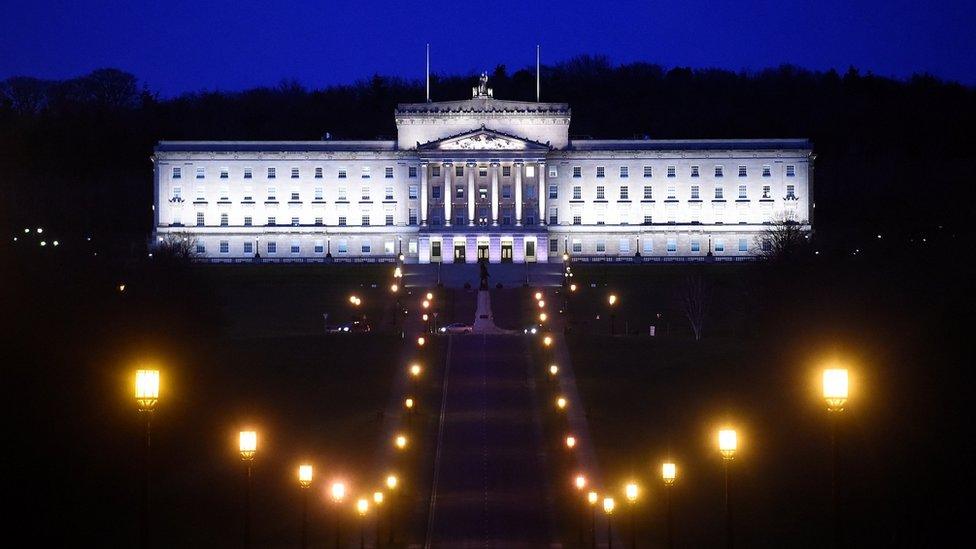Covid-19: Sinn Féin calls for all-Ireland travel ban from GB
- Published
- comments
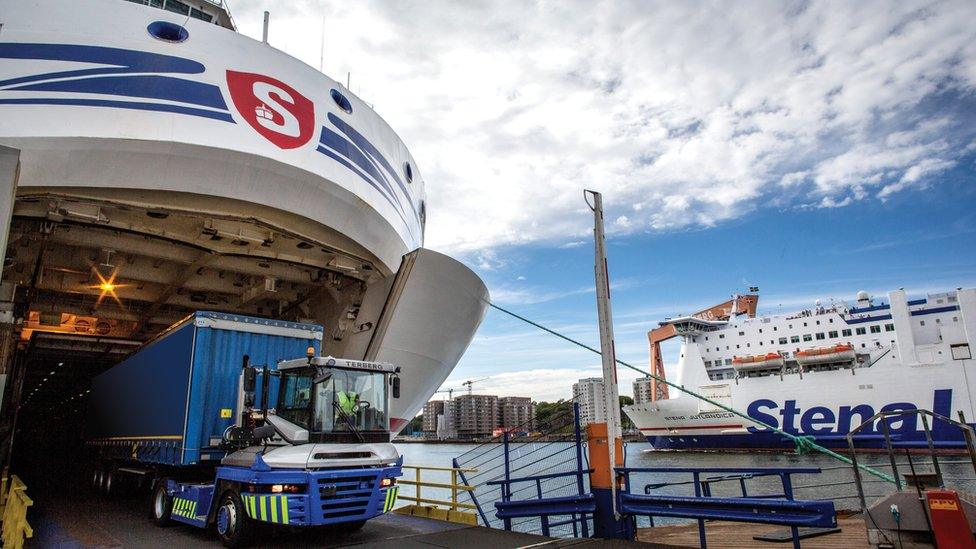
Sinn Féin has called for an all-Ireland-Great Britain travel ban to help stop the spread of Covid-19.
In a late-night vote on Monday, the SDLP also backed the move but Alliance, the DUP and UUP voted against.
The executive unanimously backed plans to issue new guidance against all but essential travel between Northern Ireland, GB and the Irish Republic.
Deputy First Minister Michelle O'Neill said Northern Ireland was in a "dangerous position".
Calling for all-island co-operation, she said: "I encourage the taoiseach (Irish prime minister) to work with us and get to the point where the whole island is shut down to inbound travellers."
"We are the outlier - over 40 countries have decided to bring in a travel ban and here one part of the island is shut down and one is not - we are in a dangerous position."
First Minister Arlene Foster did not support a full ban on travel, but urged people to show restraint in their travel, adding that a new more infectious variant of coronavirus "necessitated changes to our approach".
"Our science advisers believe that this variant is already in the Republic of Ireland, as well as London, the south east of England and across Europe," said the DUP leader.
"People should only travel outside Northern Ireland if essential."
Some 40 countries, including the Republic, have banned UK arrivals due to concerns about the new variant.
A further 16 coronavirus-related deaths were recorded in Northern Ireland on Tuesday, bringing the total number of deaths recorded by the Department of Health to 1,219.
There were also a further 439 cases of Covid-19 diagnosed. There are 447 people with Covid-19 in hospital. Thirty are in intensive care, with 23 on ventilators.
'Self-isolate'
On Sunday, the executive agreed so-called Christmas bubbles should be limited to one day.
The move followed action in England, Scotland and Wales on Saturday, cutting the previously agreed five days to just one.
Coronavirus: Ministers argue for and against NI travel ban
At Tuesday's health committee meeting, Health Minister Robin Swan told Stormont's health committee the onus to ensure safety fell on those organising and delivering tests such as the transfer test for school children.
Responding to a question from People Before Profit MLA Gerry Carroll, Mr Swann said: "If anybody is using a school facility or if a school is facilitating testing in regards to the transfer test it's up the school, the board of governors and those organising and delivering the test to make sure they meet all current regulations.
"The Minister of Education has the responsibility for schools and the delivery of the education programme - we can provide information and guidance and we do and how that is implemented is up through his department, the Education Authority and through schools."
A paper brought by Mr Swann to the executive said a travel ban could have "serious adverse implications" for the financial viability of aircraft and ferry routes.
The document, seen by BBC News NI, also said that if the new variant of coronavirus was present in Northern Ireland, the benefit of restricting travel would be "somewhat reduced".
Although it was believed to be present, this had not yet been confirmed, the paper added.
However, Mrs O'Neill said this argument was "like saying if the tap is running let it overflow and flood the bathroom".
Sinn Féin proposed taking the matter to a vote late on Monday, but it fell by a simple majority.
In Monday's emergency meeting, the executive supported advice from Mr Swann that people arriving into Northern Ireland from Great Britain and the Republic of Ireland should self-isolate for 10 days.

The medical advice to the executive was that the "relative risk" for travellers from GB having Covid-19 is less than 1 in 100, and "significantly less" for the new variant.
It says there would be "merit in limiting travel" if the variant was not present in NI, but in its absence a precautionary approach is advised including possible limiting of travel from the Republic of Ireland, given the "current disease trajectory" there.
Mr Swann's paper also called for exploring the use of "locator forms" for travellers arriving in NI.
After the meeting, the health minister tweeted that he was pleased the executive had agreed his paper.
Allow X content?
This article contains content provided by X. We ask for your permission before anything is loaded, as they may be using cookies and other technologies. You may want to read X’s cookie policy, external and privacy policy, external before accepting. To view this content choose ‘accept and continue’.


'Guidance does not go far enough for some'

There was so much division around the executive table on this issue that last night's decision didn't come until shortly before midnight.
While Sinn Féin wanted an immediate travel ban, what we got was a compromise - with ministers unanimously agreeing to terms on travel guidance.
Robin Swann set out his view that it could have some serious implications for the financial viability of air and ferry routes and costs for supply chains that ministers did not have detail about last night.
The point was also made that if this new variation is present that the benefit of restricting travel would be somewhat reduced.
So it may not be as simple to just impose a ban in law.
However, things have been left slightly ajar and the issue may well crop up today when Robin Swann appears before the health committee.
When you listen to those who have chosen not to come home, you get the sense that people would like to hear more clearly and effectively from Stormont.
While the guidance may be welcomed for some, for others it simply does not go far enough.

Meanwhile, Brian Ambrose, chief executive of George Best Belfast City Airport told BBC NI's Good Morning Ulster on Tuesday that the airport would normally handle about 10,000 passengers every day in the Christmas period.
That number has fallen to between 1,000 and 2,000 passengers.
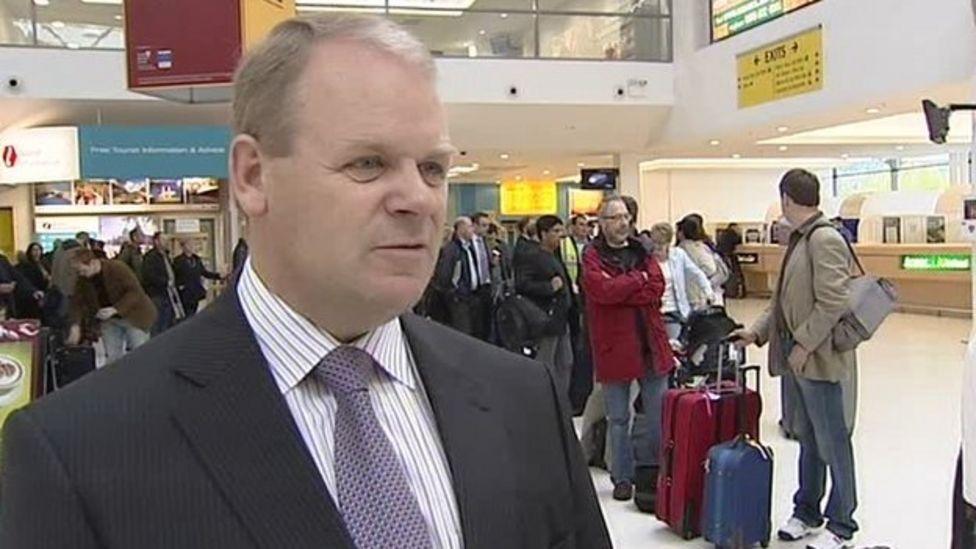
Mr Ambrose said January would be a very quiet month for the airport
It is too early to see the impact of the latest government decisions, he said, but pointed out that government guidance was clear on non-essential travel.
"It has been our experience for most of this year that the majority of our customers have not been travelling. I don't think we have spent a dollar this year to promote air travel. We have simply facilitated those who need to get from A to B," said Mr Ambrose.
"Our assumption before last night was that January is going to be a very very quiet month and that we will be facilitating essential travel only."
- Published8 January 2021
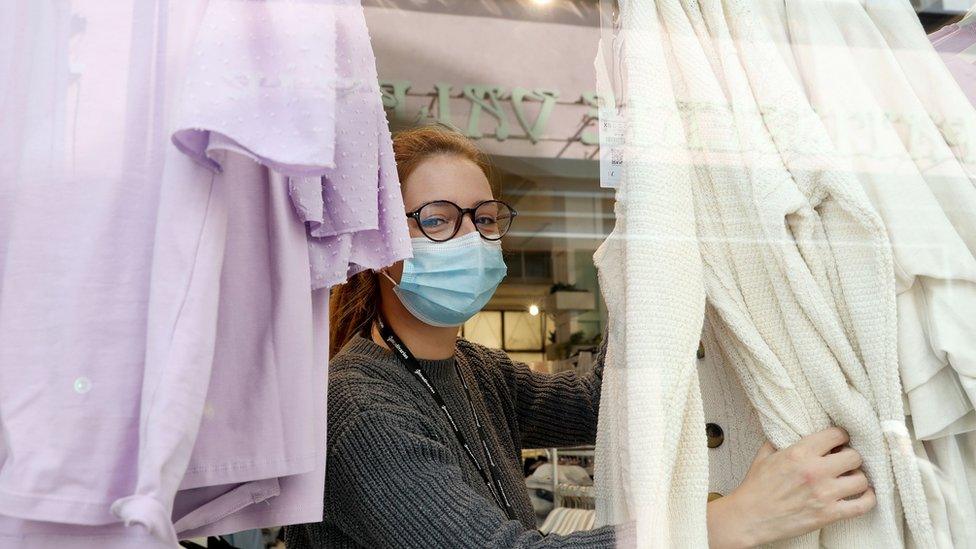
- Published22 December 2020
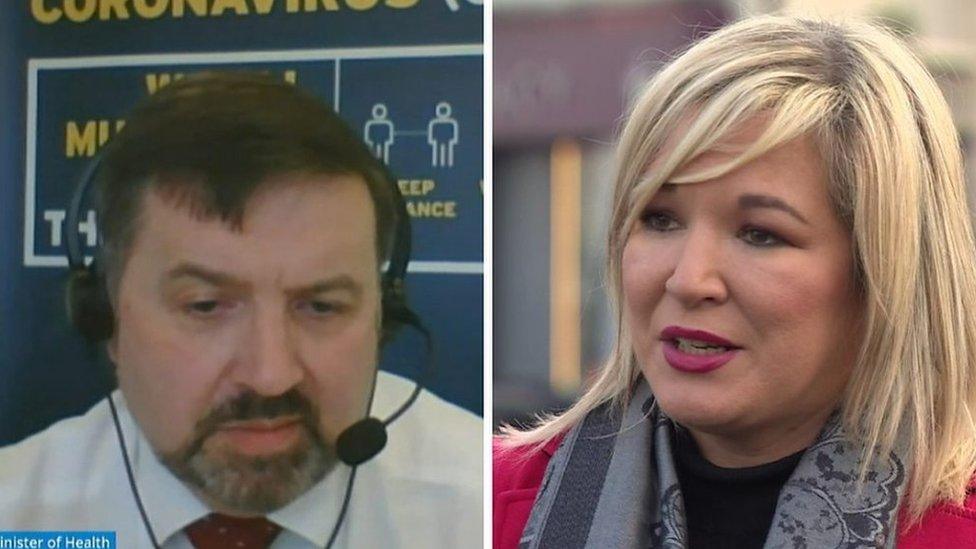
- Published29 July 2021

- Published20 December 2020
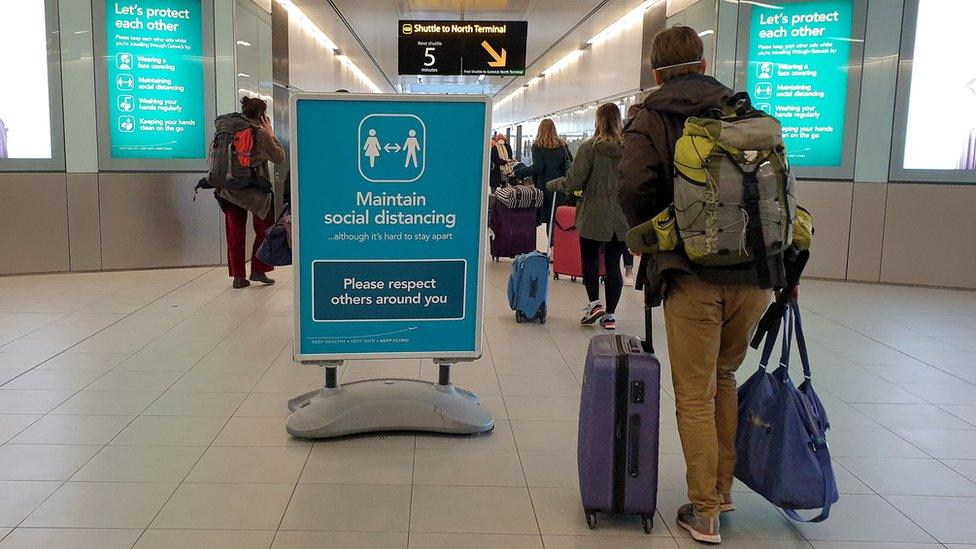
- Published20 December 2020
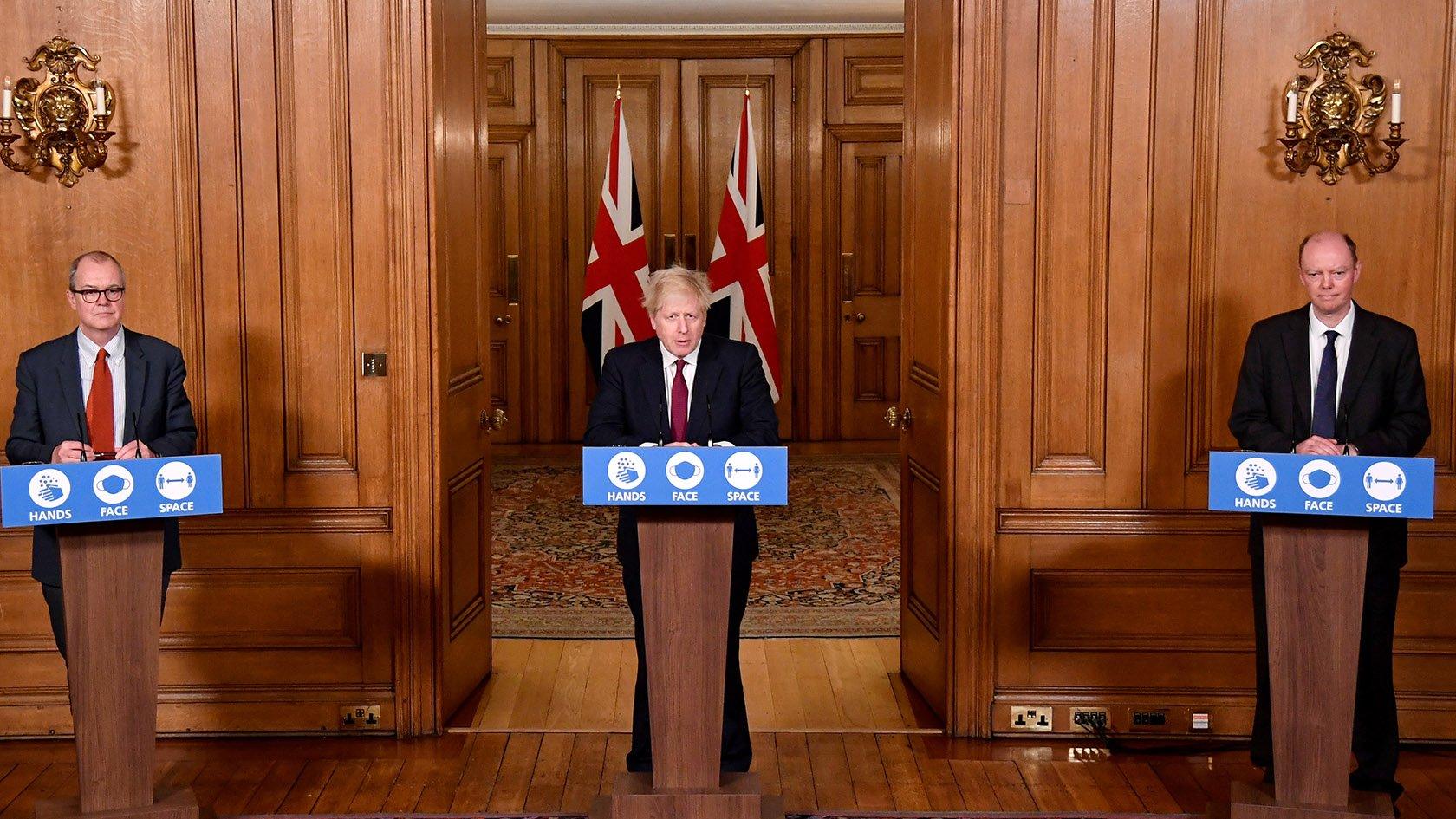
- Published20 December 2020
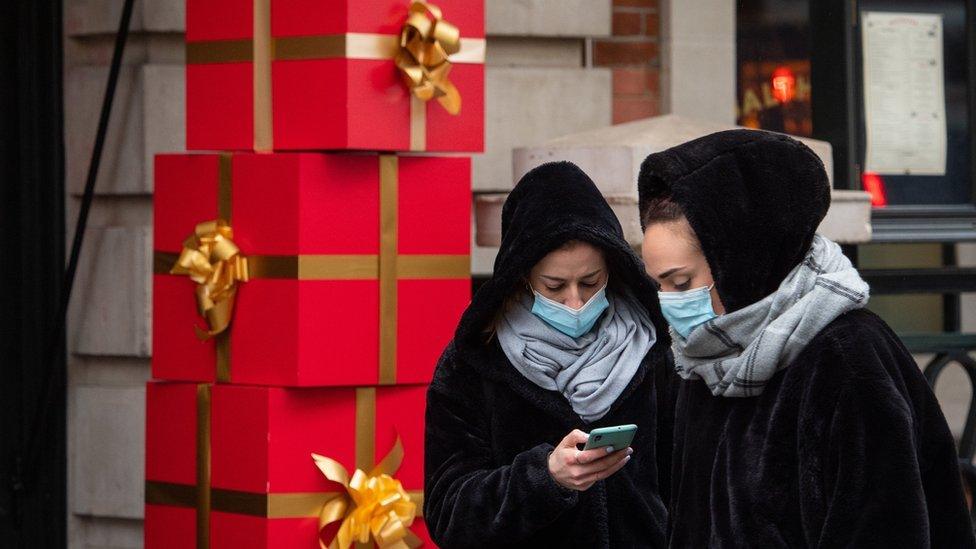
- Published20 December 2020
